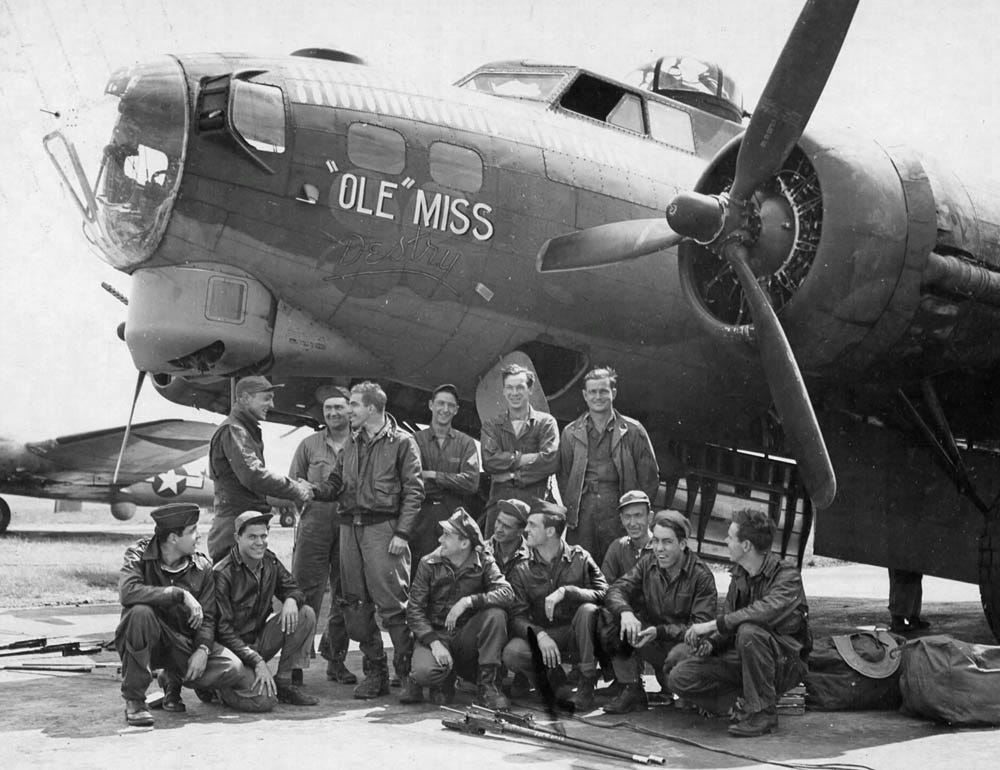This Memorial Day, Better a Shield Than a Sword
Our heroes and their descendants deserve more than just our remembrance. Golden Dome is a beginning.
This essay is free, but with Premium Membership you get MORE, including a FREE copy of my new book, Essays on the Counterrevolution. Join today.
by Rod D. Martin
May 26, 2025
Today is Memorial Day. So we should remember. We should be grateful. We should seek to make America the nation so many died to create and protect. And we should make their sacrifice count.
We should remember men like my 11th great-grandfather, Captain Thomas Graves. Graves was an early investor in the Virginia Company, years before the Jamestown colony was founded in 1607. He believed in what one of Elon Musk’s ancestors might have called “making England a multicontinental civilization”. He put his money where his mouth was, when the entire English colonial experience to date was the murdered settlement of Roanoke.
But money wasn’t enough for Graves. He put his own skin in the game, his and that of his family. He sailed to the new colony a captain, on just the third voyage to it, and defended it with his life for the rest of his life. He was there through the Starving Time. He was there when the Powhattan tried to do to the Jamestown settlers what they’d done to Roanoke’s. He was there to help establish the first freely-elected parliament in the New World, the Virgina House of Burgesses. He was there at his death at just 55, father of five children and a country.
We should remember men like my fifth great-grandfather, General Joseph Martin. During the American Revolution, Martin’s warfare kept the Cherokee and other tribes from slaughtering the Western settlers, the “Overmountain Men”. His diplomacy with those same tribes — theretofore allied with the British — not only brought a lasting peace but freed up those same Overmountain Men to reinforce American positions at Cowpens and King’s Mountain. And his pioneering spirit led this legislator to carve Martin’s Station out of the far western wilderness, just east of Cumberland Gap, “the Ellis Island of the 18th Century” through which 300,000 souls — 10% of the American population at the time of the Revolution — passed on their way to the West.
For decades he remained one of America’s top diplomats to the Indian tribes. He also was one of the strongest voices for ratification of the new American Constitution.
We should remember men like my grandfather, Arthur Foy Evans. “Dad-Dad” was navigator on a B-17 Flying Fortress of the sort immortalized in movies like Memphis Belle, tasked with bringing the Nazi war machine to its knees. We should remember men like my father, Dallas Martin, who at the last minute was deployed not to Vietnam but to Germany to talk to spy planes during the Soviet invasion of Czechoslavakia and the height of what seemed likely to become the Third World War.
It was there at Wiesbaden that I was born.
Freedom is never free. Every generation has borne the burden. Some did so at the front, at Gettysburg or in the Ardennes. Some stormed beaches, on D-Day and on “the shores of Tripoli”. Some were prepared to do the same in Kyushu and Honshu, but were saved by advancing technology. And that advance has saved countless lives. In World War II we lost 400,000 brave souls: that would have climbed to 1.5 million — and 10 million more Japanese — but for the atomic bomb. In Vietnam, in more than twice as many years, we lost 58,000. In Iraq, in almost five times as many years, we lost 4,500.
So long as there is war there will be death. But less death is better. Two orders of magnitude less death is phenomenal. Precision munitions in place of carpet bombing account for much of this. “Peace through strength” accounts for more: being strong enough that few want to attack us badly enough to see it through. Historically that’s been very hard to achieve. Yet in modern times, for the most part, America has achieved it, for itself and for its allies. Putin may attack Ukraine and Georgia: he certainly dares not attack, all these years on, Poland and Estonia. The consequences of tripping over Article V are simply too grave.
But at the tip of that spear remains the U.S. serviceman, whether in an F-22, an M-1, or a missile silo. Deterrence is only possible insofar as some large group of someones stand ready, in General Patton’s words, to “make the other guy die for his country.” Everyone who takes up that task is a hero. With his life he defends little boys and girls at play.
Today’s heroes are all volunteers. They have been nearly all my life. America has had a draft in the past, but even in those years many (like my father and grandfather) volunteered. 6.3 million Americans volunteered during the three and a half years of World War II alone, almost five times the number of active duty personnel serving today, and in a country with one-third its current population. I am not suggesting that those drafted were any less heroic, or honorable. I’m simply pointing out that Americans have always stood ready to defend family and freedom, so much so that perhaps the draft was born more of fear than of necessity.
As civilians, we have an unpayable debt to these men and women. We have a duty not to spend their lives needlessly. And because we are a Republic, we share their duty to defend the families, communities and ideals that compose this nation.
Donald Trump’s “Golden Dome” announcement this week is an enormous step in that direction.
Since the invention of that atomic bomb, and its replication by the Soviet Empire, the world has been held hostage to the aptly-named dogma of “MAD”, or Mutual Assured Destruction. And to be fair, it’s worked: the nuclear holocaust many of us grew up fearing never came, in part because of brave statecraft and in part because the consequences were too horrible to contemplate. Nevertheless, the world came close to the brink more than once, as India and Pakistan just did this month.
Likewise, last fall, Iran fired over 300 missiles at Israel, some of them the exact sort that in another time might carry nuclear warheads. Iran was not deterred by Israel’s strength, though by all Western logic they should have been. This is exactly why both Trump and Israeli Prime Minister Benjamin Netanyahu have made clear Iran must not be permitted to get the Bomb: for the Mullahs, the calculations that kept the world safe during the Cold War clearly do not apply.
But they don’t have to. Not anymore.
Israel, with U.S. help, shot down virtually all of Iran’s missiles. Just one person died, ironically a Palestinian. And nuclear weapons are much harder and more expensive to produce. Had these missiles been nuclear-tipped, Iran would have lost virtually its entire nuclear arsenal, without success and without having harmed a single Israeli nuke. The attack would have become an entirely one-sided suicide.
Just after high school, I got to spend some time with Edward Teller, the father of the H-Bomb. He had recently written a book promoting Ronald Reagan’s Strategic Defense Initiative. It was called Better a Shield Than a Sword, and it’s still worth reading today.
Democrats loathed Teller as they did Reagan. But Teller understood the horrors of the bomb he’d helped create, just as Reagan understood that MAD was inherently immoral. Holding each other’s citizens hostage is not a reasonable strategy absent necessity, and the technology has long rendered it unnecessary.
Democrats have called missile defense “destabilizing” since it became possible, even before I was born. Yes, the technology was more brute-force in the days of Nike X, Sentinel, and the ABM Treaty. But it was effective in much the same way that Iron Dome is now: it increased the risk that an aggressor wouldn’t be able to pull off a first strike, rendering its enemy enraged and itself defenseless. Democrats screeched “MAD!”, even while the Soviets deployed missile defenses around Moscow, and illegally “upgraded” mobile air defense systems like the SA-12B to antiballistic missile quality. Had the Soviet Union survived, it would have had a nationwide missile defense no later than 2000, imperfect perhaps, but sufficient to checkmate and thus enslave the United States.
This is precisely why Reagan refused to give up SDI: indeed, he offered to develop it jointly with the Soviets, so that everyone could be protected and no one face the threat of nuclear war. But as in the 1960s and 1970s, Democrats worked as hard to thwart him as the Russians, the latter of whom had every intention of bringing about that nuclear checkmate which even a partially-capable American defense would make impossible.
So here we are today. Israel has an effective nationwide missile defense. The United States does not, at least not against nuclear powers more substantial than North Korea. And that is and always has been both absurd and obscene.
I’ll be writing more about the specifics of Golden Dome soon, but for this Memorial Day let’s assert the principle and purpose. Our brave men and women put their lives daily on the line to defend the American people: each of us, and not just us, but our allies also. Shouldn’t we do everything we can to make it less likely that they — or the innocent civilians they defend — should have to face death? Since 1945, the greatest threat to human existence has been nuclear war. Since 1957, that threat has mostly consisted in missiles. Since at least 1968 we’ve had the technology to shoot those missiles down, today with orders of magnitude more certainty than then.
Shouldn’t we?
Should our military bases face a missile threat? Should our moms? Should anyone?
Technology advances in spurts. Sometimes offensive weapons dominate, sometimes defensive. We are entering one of those defensive eras, one in which ballistic missiles can be made ineffective, and — as we deploy not just Golden Dome 1.0 but the laser-based follow-on (similar to Israel’s Iron Beam) — hypersonic weapons and drones made obsolete with them. We can render the most destructive weapons man has unleashed inert. We can raise Teller’s shield against his sword.
We can truly defend America: its people and its ideals.
That’s why every one of my ancestors served.
Let’s remember them by making their descendants’ sacrifice unnecessary.










Incredibly insightful essay on National Defense! I wish we were neighbors..! : )